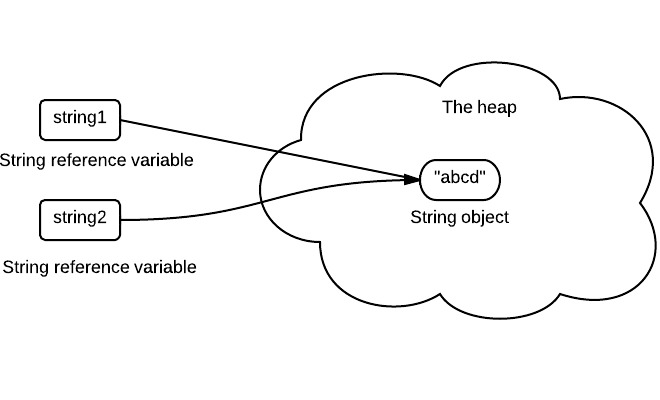Why Are Strings Immutable in Java? Understanding the Core Principles
Wiki Article
Immutable Strings: A Trick Part in Ensuring Data Consistency and Dependability
In the realm of information administration, the relevance of unalterable strings can not be overemphasized. The idea of unalterable strings goes beyond mere technicality; it is a linchpin in the complex web of data governance.The Principle of Immutable Strings
Unalterable strings, a basic idea in programming, describe strings that can not be modified when they are created. Basically, when a string value is appointed, any type of operation that appears to change the string really develops a brand-new string. This immutability ensures information consistency and integrity in applications, as it prevents unexpected adjustments to the original information.
Benefits in Information Consistency

Data consistency is crucial in different elements of software advancement, consisting of data source monitoring, multi-threaded environments, and distributed systems (Why are strings immutable in Java?). Unalterable strings add significantly to accomplishing this uniformity by preventing information corruption due to concurrent accessibility. In scenarios where several processes or threads communicate with the very same data simultaneously, unalterable strings function as a protect versus race conditions and synchronization concerns
Furthermore, the immutability of strings simplifies debugging and screening procedures. With immutable strings, programmers can trust that as soon as a string is set, it will certainly remain unchanged, making it simpler to trace the resource of mistakes and guaranteeing that test situations generate regular results. This reliability in data handling eventually leads to extra secure and durable applications.

Executing Unalterable Strings
Making certain the immutability of strings calls for a thoughtful method to their execution in software application advancement. One key approach is to design string courses in a manner that protects against adjustments when a string things is produced. By making strings unalterable, developers can improve data uniformity and dependability in their applications.To carry out unalterable strings effectively, programmers should favor producing new string objects instead of modifying existing ones. This practice makes sure that once a string is designated a value, it can not be altered. In addition, any type of procedure that shows up to change the string ought to develop a new string with the wanted adjustments as opposed to changing the original.
Moreover, making use of immutable strings can streamline concurrency management in multi-threaded atmospheres. Considering that immutable strings can not be altered after production, they can be safely shared among numerous threads without the risk of information corruption.
Duty in Integrity Guarantee
In software development, the usage of unalterable strings plays a crucial function in making sure the reliability of information procedures. Immutable strings, once produced, can not be customized, ensuring that the data they represent continues to be consistent throughout the application's execution. This immutability property offers a degree of assurance that the data being refined will certainly not be accidentally altered, causing unforeseen results or errors in the system.By including immutable strings right into software program design, programmers can improve the reliability of their applications by minimizing the risks connected with mutable information - Why are strings immutable in Java?. Unalterable strings help Related Site in preventing data corruption or unintentional alterations, which can be particularly essential when managing sensitive info or when data stability is extremely important
Furthermore, the use of immutable strings simplifies concurrent handling, as multiple threads can securely accessibility and share string data without the risk of one thread changing the material while an additional is reading it. This element contributes considerably to the overall dependability of the software program system, ensuring predictable and constant habits in information taking care of operations.
Applications and System Assimilation
The smooth assimilation of immutable strings into various applications and systems is essential for ensuring robust information uniformity and dependability across varied technological atmospheres - Why are strings immutable in Java?. Immutable strings play a crucial duty in enhancing the honesty of data exchanges and communications within facility software communities. By incorporating immutable strings right into applications, programmers can mitigate the threats related to information tampering, unauthorized alterations, and unintentional changes, consequently fortifying the overall safety and security position of the systemIn the context of system assimilation, unalterable strings work as a foundational element for developing safe and secure interaction networks and helping with smooth data transfers in between different components. Their unalterable nature ensures that data transmitted between systems continues to be the same and verifiable, minimizing the possibility of inconsistencies or errors that can endanger the honesty of the whole system. Moreover, immutable strings can enhance interoperability between diverse systems by supplying a standardized layout for information depiction, allowing more effective information processing and exchange methods across interconnected platforms. By adopting unalterable strings in applications and system combination procedures, companies can fortify their information infrastructure and promote the dependability and uniformity of their info possessions.
Verdict
In verdict, unalterable strings play a critical function in keeping information consistency and dependability in various applications and system integrations. By guaranteeing that strings can not be transformed when produced, the integrity of data is preserved, lowering the threat of variances click to investigate and errors. Executing immutable strings can significantly improve the reliability of systems, ultimately bring more about more exact and reputable data processing.
Report this wiki page